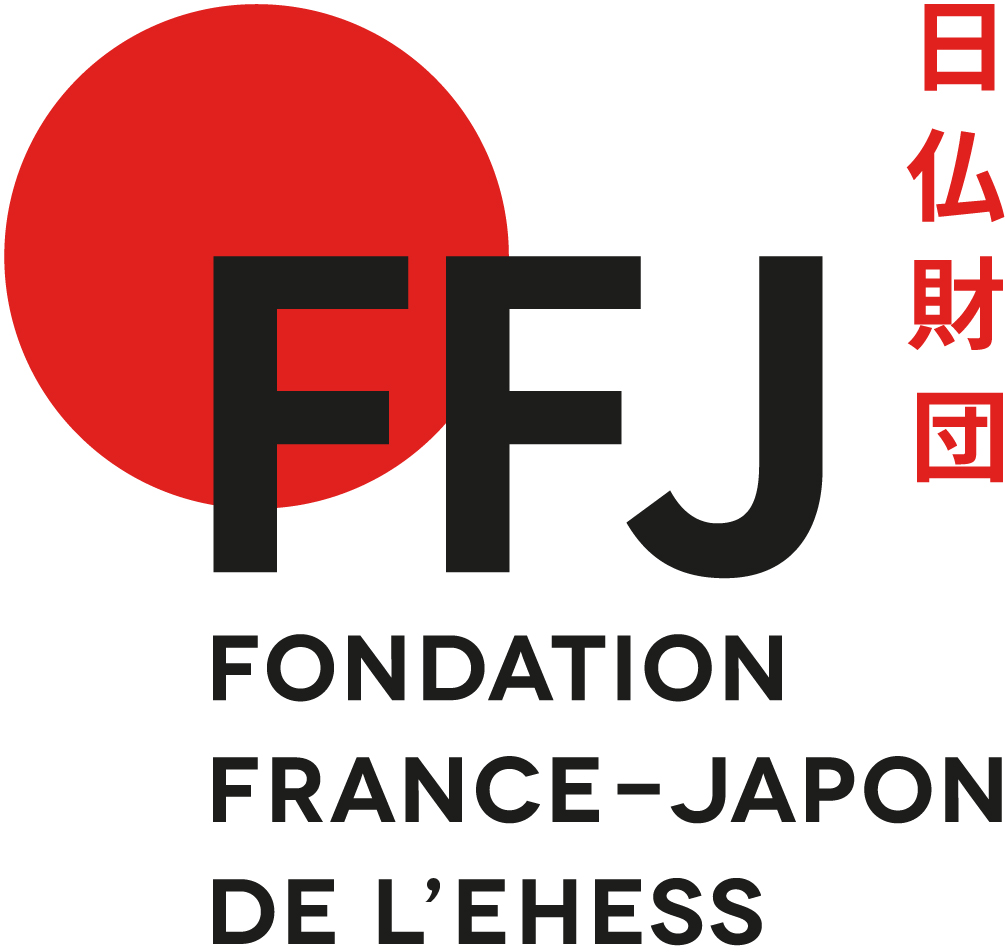Trinh Hoang Anh Nguyen
Policy for the Energy Transition in ASEAN, with Lessons Learned from EU and Japan
21/03/2018

The project theme
Association of Southeast Asian Nations (ASEAN) as a whole is the world’s seventh largest economy and is projected to become the fourth biggest economy by 2050. This fast development, paired with demographic dynamism, would result in a significant increase in energy demand necessary to fuel the economies of ASEAN members with their increasing levels of living standard. Between 2011 and 2035 electricity demand is projected to increase by 83%, which is twice the global average. Over the period of 2015 to 2040, total final energy consumption of ASEAN is expected to increase about 2 times (Figure 1).
 Figure 1: Total final energy consumption by country in ASEAN, 2005-2040 (ACE, 2018)
Figure 1: Total final energy consumption by country in ASEAN, 2005-2040 (ACE, 2018)
To fulfill their commitments on emission reduction in the Nationally Determined Contributions (NDCs) at the COP21, substantial reductions of 16% carbon intensity levels from the present value as well as ASEAN’s energy intensity reduction target of 20% by 2020 and 30% by 2025 based on the 2005 level, the region will have to change its means to achieve its economic development goals. From 1990-2010 the region was one of regions that increase the fastest CO2 emissions per capita worldwide. If plans for coal power expansion until 2030 are realized, ASEAN will suffer for negative impacts of coal-related pollutions. At the same time, Southeast Asia is particularly exposed to the consequences of climate change due to its extended coastlines.
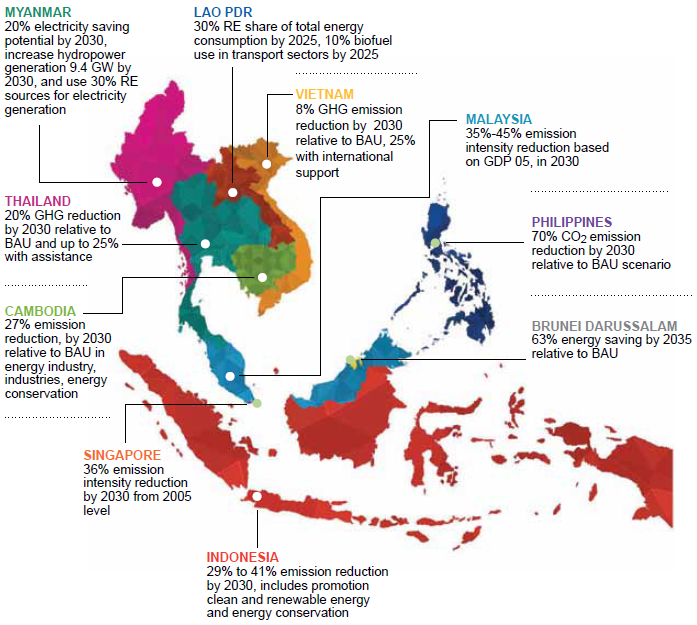 Figure 2: Nationally Determined Contributions (NDCs) by ASEAN nations at the COP21 in Paris 2015, (ACE, 2018)
Figure 2: Nationally Determined Contributions (NDCs) by ASEAN nations at the COP21 in Paris 2015, (ACE, 2018)
The continued embrace of coal threatens to leave the region with vast amounts of stranded assets as the world market determines the declining value of this source of energy. At the same time, the falling costs of renewable energy technology that drive the transition towards cleaner energy systems elsewhere, are not enjoyed yet in Southeast Asia due to difficulties in policy and institution.
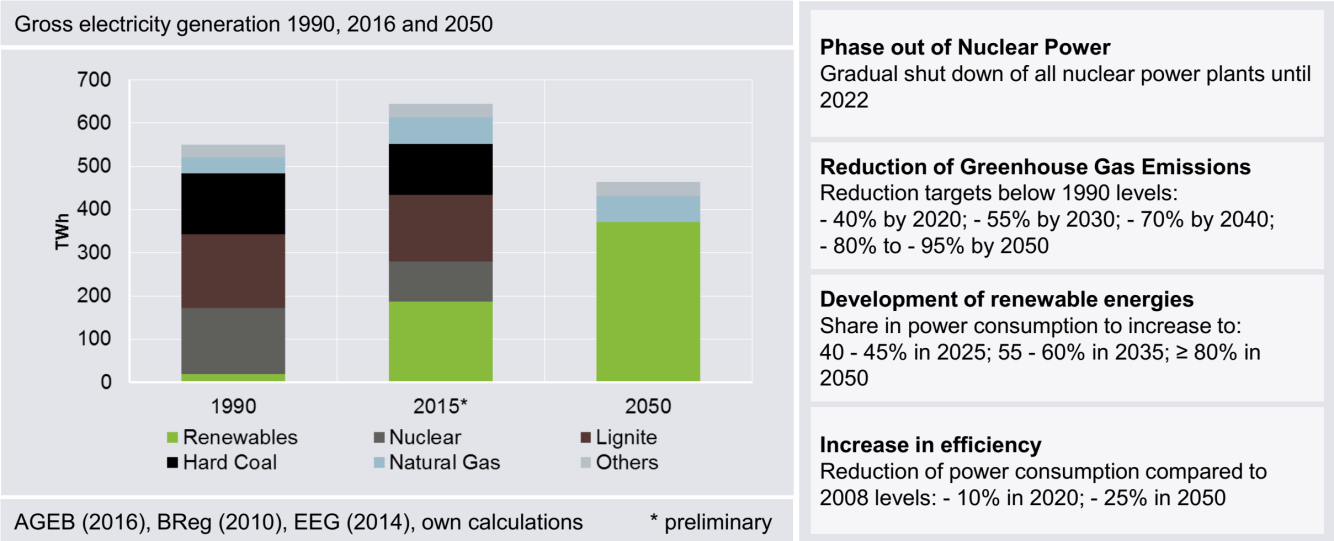 Figure 3: The German Energy Transition in the power sector: Phasing out nuclear and coal, and ramping up efficiency and renewables (Agora, 2017)
Figure 3: The German Energy Transition in the power sector: Phasing out nuclear and coal, and ramping up efficiency and renewables (Agora, 2017)
EU and Japan have already advanced their energy systems towards to more sustainable and cleaner futures. For example, many European countries have developed their own energy development scenarios based on 100% of renewable energy by 2050. Even in cases of France and Germany where fossil fuels still dominate the energy supply sectors, they are now promoting large deployment of energy efficiency and renewable energies to reach their ambitious target of zero emission from the power sector in next few decades. More understanding and collaborations between ASEAN and the two regions EU and Japan could significantly help these Southeast Asian countries on their energy transition in decades to come.
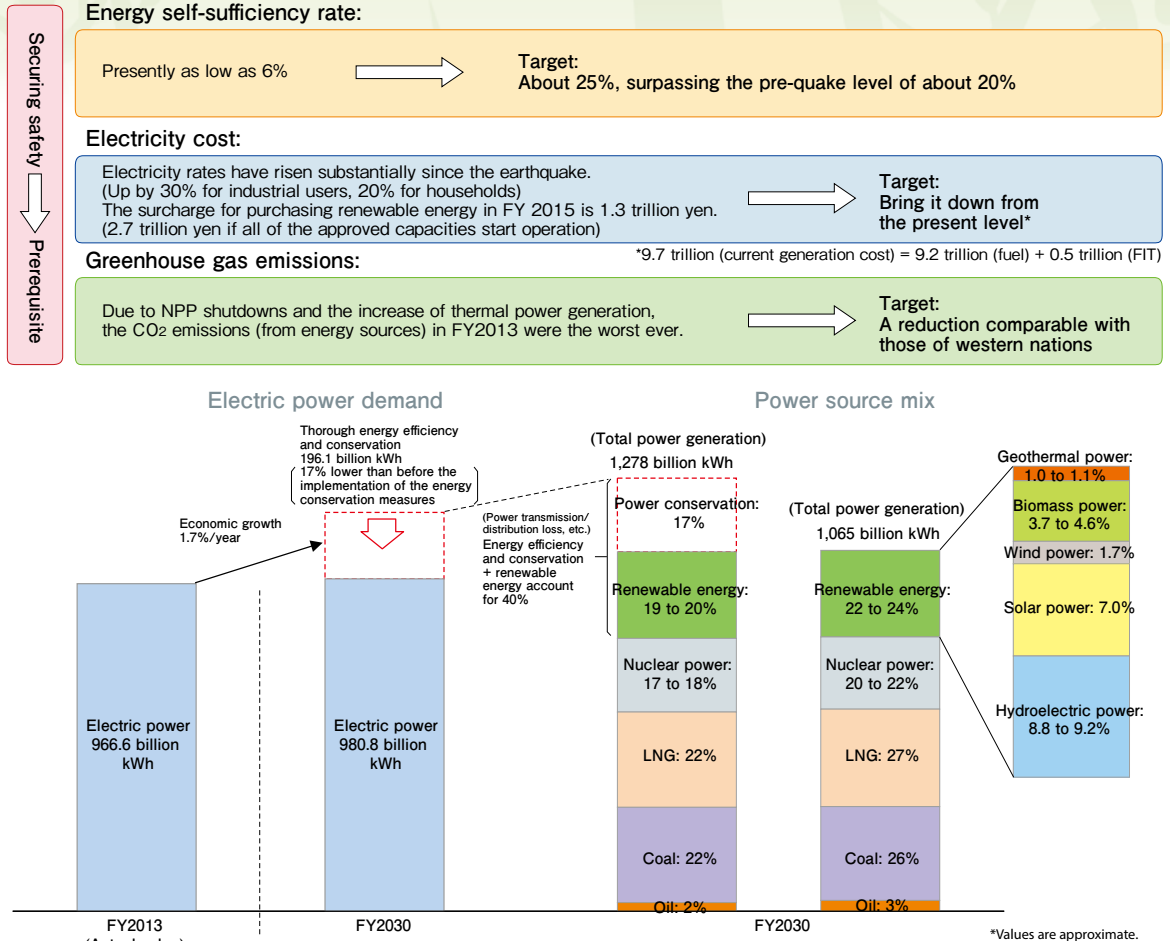 Figure 4: Three viewpoints concerning development of the Energy Mix in Japan: (1) security of national energy supply, (2) reducing electricity prices, and (3) reduce GHGs emissions (FEPCJ, 2016).
Figure 4: Three viewpoints concerning development of the Energy Mix in Japan: (1) security of national energy supply, (2) reducing electricity prices, and (3) reduce GHGs emissions (FEPCJ, 2016).
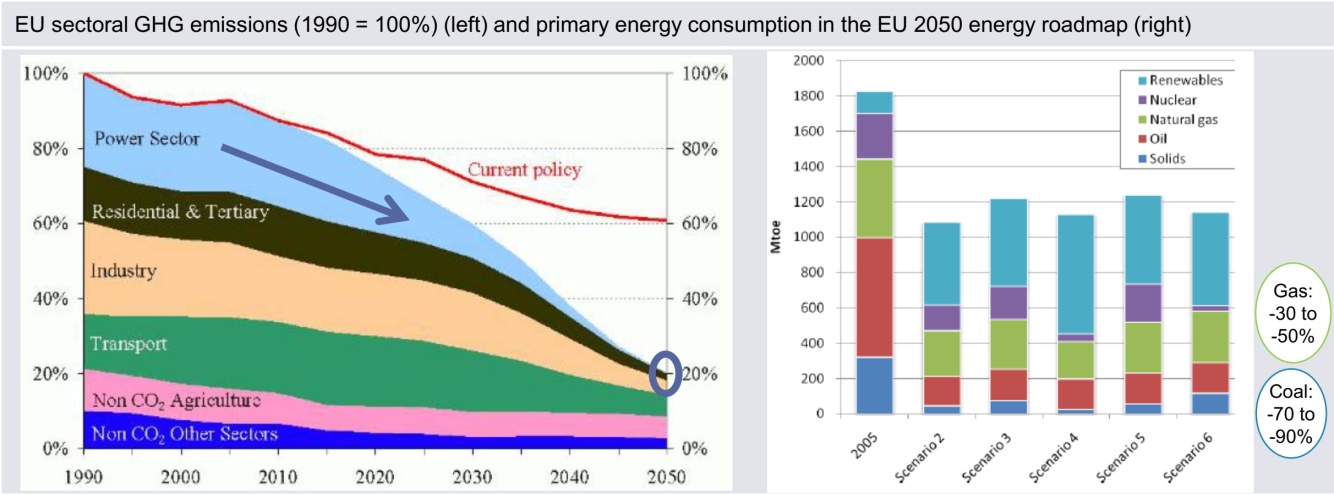 Figure 5: EU 2050 energy & climate targets imply significant reduction of the use of fossil fuels and decarbonisation of the power sector
Figure 5: EU 2050 energy & climate targets imply significant reduction of the use of fossil fuels and decarbonisation of the power sector
Project goals
Based on lessons learnt from the energy transition in Europe and Japan, paired with an appreciation for fundamental political differences, this project provides policy insights with critical views and analyses to promote Southeast Asian countries’ energy transition.
The project also sets a goal of promoting more collaboration between relevant stakeholders in the three regions ASEAN, EU and Japan with some initiatives to create an ASEAN/Asia-EU energy transition forum/dialogue.
Project approach
This study will analyze transition policies from the point of view of transition science with main steps as the followings:
- Analysis of the current system and regime and identify of a future regime based upon policy targets.
- Assessment of whether current policy making in each region/country supports the proposed transition pathway in the energy sectors.
- Identification of a compatible transition pathway and comparison of the policies for energy transition
- Draw lessons learned and suggest new approach(es) for ASEAN in its energy transition process.
The policies under research in this project are classified into different groups as below:
- Subsidies/incentives/development plans to increase/decrease the use of fossil fuels
- Financial and supporting mechanisms for the development of renewable energies and energy efficiency
- Structural/institutional change in energy and carbon markets
- Approach(es) for long-term low carbon energy development scenarios
References
Agora-Energiwende, 2017: Review on the Developments in 2016 and Outlook on 2017
Agora-Energiwende, 2017: Lesson-learned in the Energy Transition: Some insights from Germany and Europe
Andrew J.Chapman and Kenshi Itaoka, 2018: "Energy transition to a future low-carbon energy society in Japan's liberalizing electricity market: Precedents, policies and factors of successful transition", Renewable and Sustainable Energy Reviews, Volume 81, Part 2, January 2018, Pages 2019-2027, ASEAN Center for Energy (ACE), 2018: the 5th ASEAN Energy Outlook.
B.W. Ang, Tian Goh, 2016: "Carbon intensity of electricity in ASEAN: Drivers, performance and outlook", Energy Policy, Volume 98, November 2016, Pages 170-179
D.A. Lachman, 2013: "A survey and review of approaches to study transitions", Energy Policy (2013)
Kostas Andriosopoulos and Stephan Silvestre, "French energy policy: A gradual transition", Energy Policy, Volume 106, July 2017, Pages 376-381
K. Araújo, 2014: "The emerging field of energy transitions: progress, challenges, and opportunities", Energy Res. Soc. Sci., 1 (2014), pp. 112-121, 10
Sopitsuda Tongsopit et al. 2015, "Energy security in ASEAN: A quantitative approach for sustainable energy policy", Energy Policy, Volume 90, March 2016, Pages 60-72
Paul Simons, 2017: "The energy transition of France in the global context, IEA The Government of Vietnam", 2016: the 7th Power Development Plan – revised The Federation of Electric Power Companies of Japan, Japan Electricity Review, 2016
Tim Buckley and Simon Nicholas, "Japan: Greater Energy Security Through Renewables: Electricity Transformation in a Post-Nuclear Economy", IEEFA, 2017 |



